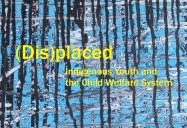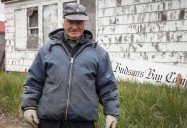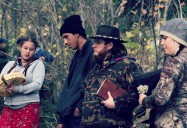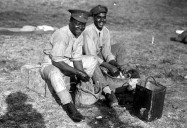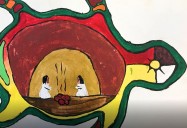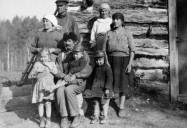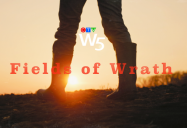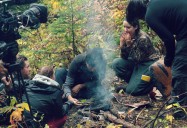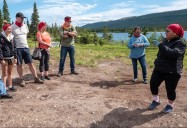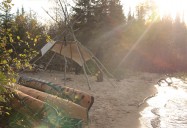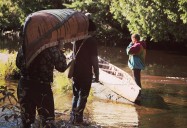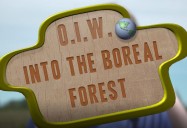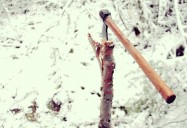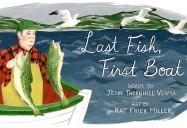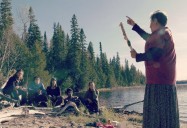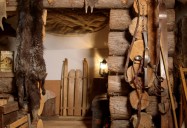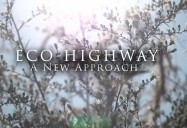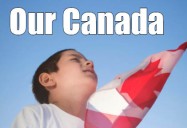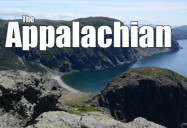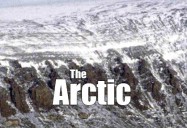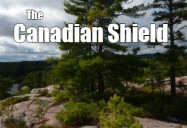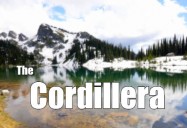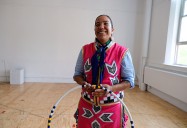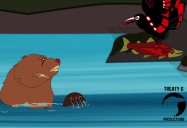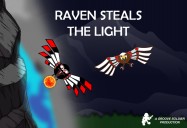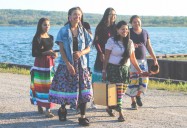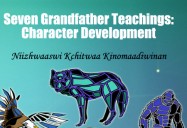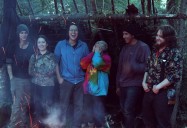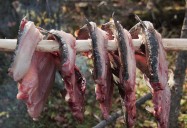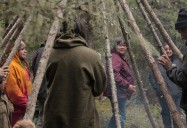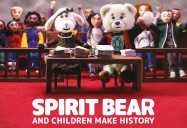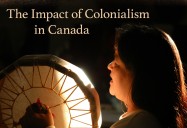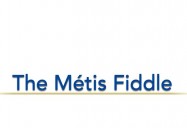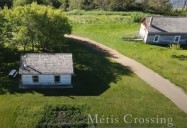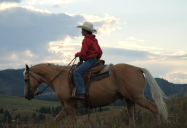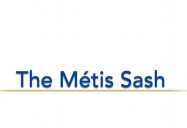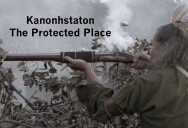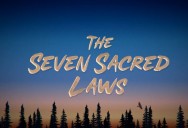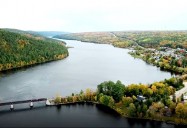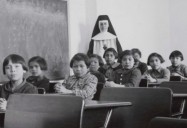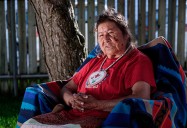
- TDSB: Art
- TDSB: Black History
- TDSB: Canadian & World Studies
- TDSB: Canadian Social Studies & First Nations
- TDSB: Career Studies & Character Ed
- TDSB: Equity & Diversity Studies
- TDSB: Financial Literacy
- TDSB: Food, Fashion & Clothing
- TDSB: Health & Phys Ed
- TDSB: Health/Safety/Abuse
- TDSB: Language
- TDSB: My Job Rocks Series - Career Education
- TDSB: PBS Playlist
- TDSB: Science
- TDSB: Social Sciences & Humanities
- TDSB: Social Studies
TDSB: Canadian Social Studies & First Nations
Eastern European Immigration Experiences: Journeys to Canada Series
Width Height
Subject(s): Canadian History, Canadian Social Studies, Canadian World Studies, History, Social Studies
Grade Level: 6 - 8, 9 - 12, Post Secondary
Immigration between 1867 and 1914 resulted in an important period of population growth in Canada. Significant changes that occurred after Confederation made an immigration boom possible in the Prairies. Canada's new transcontinental railway made travel across the country easier. The Dominion Lands Act of 1872 made free and fertile homesteads available for settlers. The Department of the Interior began working to attract hard-working immigrants to the Canadian prairies offering free land. Europeans, including Romanians, Hungarians, Ukrainians, Jews, Doukhobors and Mennonites were motivated to come to settle in the west, and begin farming. All was not easy!
|
Running Time: 16:19 Country of Origin: Canada Captions: |
Producer: Past Perfect Productions/6801260 Manitoba Inc. Copyright Date: 2017 Language: English |
Video Chapters
-
Eastern European Immigration Experiences: Journeys to Canada Series 16:19
Immigration between 1867 and 1914 resulted in an important... -
Canada, a Multicultural Nation of Immigrants 1:38
People are motivated to immigrate to Canada by push factors... -
Canadian Immigration 1867 to 1914 2:08
The Canadian government Dominion Lands Act of 1872 offered free... -
Ukrainian Immigration to Canada 3:17
Ukrainians, one of Canada’s largest ethnic groups, settled on... -
Jewish Immigration to Canada 3:21
Discrimination in Russia in the late 19th Century brought many... -
Pacifist Mennonites Come to Canada 2:59
Mennonites believed in non-violent living and they sought... -
Doukhobors Flee Persecution 1:00
Doukhobors fled religious persecution in Russia and came to... -
Canadian Immigrants Preserve Their Heritage 1:27
Canadian descendants of these prairie immigrants preserve their...
TRANSCRIPT
Close- Canada is often described as a nation of immigrants, a country with a multicultural identity. Canadian immigrants are people who live in Canada but were born in a different country. Many different factors motivate people to migrate from other countries to Canada. When we examine the historic reasons for human migration, there are typically two factors at work.
- Push factors are the circumstances driving people to leave their homeland, seeking a new place to live. These causes may be social, where people are persecuted because of their religion or ethnicity. They may be political when war or changes in government put people endanger. Economic situations, such as a lack of jobs or extremely low wages, can also push people to emigrate. While environmental factors, such as prolonged drought can result in severe food and water shortages.
- Pull factors are the circumstances that attract people to a new country. Again, these causes may be social, political, economic, or environmental. Between 1867 and 1914, many of these push and pull factors are at play as Canada experienced a period of substantial immigration on the prairies.
- [MUSIC PLAYING]
- With the Dominion Lands Act of 1872, the Canadian government offered settlers free land on the prairies. Officials felt it was important to develop agriculture in the West to produce grain for export to American and European markets. Canadian politicians also hoped settlement in Western Canada would prevent the United States from attempting claims on the land.
- In 1896, the settling of the prairie region further accelerated when Canada's new Minister of the Interior, Clifford Sifton, intensified recruitment efforts in parts of Europe, looking for people to populate the Canadian West. The Canadian government advertised in different European countries, promising potential settlers 160 acres of prairie land and good soil for producing plentiful crops in Canada. Sifton's willingness to recruit immigrants from Eastern Europe was not welcomed by all in Canada.
- There were arguments in Parliament about people from Eastern Europe being non-preferred. The Canadian establishment wanted people from the British Isles or Americans to move into Canada. They were not too unhappy about Germans and Dutch and other people from Northwestern Europe, but Eastern Europeans they looked down on. They thought they were barbaric, uncultured, that they wouldn't add much. Nevertheless, people know that the West needed to be settled. And they weren't getting enough immigrants from the countries they really liked, so they said, OK, we'll take all the people from Eastern Europe.
- Romanians, Poles, Hungarians, and Ukrainians were among those embracing this opportunity to own land in Western Canada. Ukrainian Canadians are one of Canada's largest ethnic groups. Over half live in the prairie provinces. In the late 19th century, there was no nation of Ukraine. Ukrainians are coming to Canada from areas under the rule of the Austro-Hungarian empire and areas within the Russian empire.
- Most parts of Europe were caught up in empires, not nations, for a long time. And there was nothing particularly unusual about many different ethnicities being mixed into one area.
- Between 1891 and 1914, approximately 180,000 Ukrainians arrived in Canada, the majority of whom settled in the prairies. Rural block settlements were established by Ukrainian immigrants at the time. Block settlements were small communities of homesteaders almost entirely made up of one ethnic group. Different ethnic blocks were scattered across the prairies. Ukrainian Canadians also settled in cities such as Winnipeg, Edmonton, and Saskatoon.
- Whether in urban or rural communities, their new lives included the establishment of institutions for community members to gather. Ukrainian settlers built churches with distinctive onion shaped domes that served as places of worship and centers for community life. They also established reading rooms and several Ukrainian language newspapers. Children from Ukrainian immigrant families were largely taught both English and Ukrainian.
- And we now, of course, have official policy of multiculturalism, which is wonderful. But these folks were multicultural at a time when official government policy was assimilate these people, make them fit in, make them be like everyone else.
- By the time of the First World War, discrimination sharply increased. Along with other Canadians of Eastern European origin, approximately 80,000 Ukrainian Canadians were registered as enemy aliens. Thousands were arrested and put into internment camps across Canada.
- In spite of this treatment, many Ukrainians wanted to join the Canadian Army and fight in Europe. After the First World War, Ukrainian Canadians continued establishing themselves and their cultural heritage. Religious organizations and Ukrainian labor temples played important roles in cities across Canada.
- They were struggling to preserve culture and linguistic heritage. And they really did quite a remarkable job at it. Certainly because we have an official policy of multiculturalism, where we actually celebrate difference, celebrate diversity, it's a little easier now to do it than it was back then.
- By the end of the 19th century, life for Jewish people in Europe became increasingly difficult, specifically in the Russian empire.
- Jews were subject to discriminatory measures. In the Russian empire where most of them lived, they were not allowed to live in large sections of the country. They were restricted in the numbers who could go to universities. And they suffered from other elements of discrimination. Especially in the late 19th century, there were some pogroms, or race riots, where they were attacked. Numbers were killed. After each one of those episodes, as you can imagine, there was a rapid spike in the number of people who fled to look for safety in countries such as Canada.
- Some Jewish immigrants journeyed to the prairies and established farms.
- And sometimes, with special arrangements, there were Jewish farming settlements, especially in Western Saskatchewan, but also some in Manitoba. But most people came to the cities, especially to Winnipeg. There were very few people who came with any money. There was not much of a social safety network at that point. You got off the train. And within a couple of days, you found a job.
- Jews were very happy to be in Canada. They had many opportunities that they didn't have in the old country. The economy was booming. Even if they were the lower rungs of the economy, they did better than they did over there. And they had some chance for advance.
- Jews in Canada and in Winnipeg in particular in the interwar periods we're making progress and had considerable acceptance. Still there was a great deal of reluctance from the Canadian establishment, the Anglo establishment, to let them into more prestigious businesses. There are a number of very famous examples, such as the quota on Jewish acceptance to the Manitoba Medical School and the Manitoba Club, which was not only a social club, but it was a meeting place for government officials and businessmen, where a lot of deals and public business was done. Jews were not allowed to be members until about 1960.
- In the 1930s, immigration to Canada was severely limited. As a result of prejudice against Jewish people in Canada, Jewish immigration was almost completely cut off.
- Canada has a particularly poor record at that time. A famous book was published 20 years ago or so called None is Too Many, quoting the Deputy Minister of Immigration who said, none is too many. How many do want? None is too many.
- In the years after World War II, conditions and opportunities for Jewish Canadians began to improve.
- As the world began to become more aware of the Holocaust, restrictions on Jewish immigration and restrictions on immigration in general were lifted.
- Mennonites are a Protestant religious group whose origins date back to the 1500s. They separated from the Roman Catholic church on the main principles that the church and state should be separate, also believing in a life of nonviolence, which for many years led them from country to country.
- One of the factors always was military service. And Mennonites said, no, we are people of nonviolence. We cannot kill anyone. And so they moved from one from one country to the other looking for governments that would be friendly to them. And they found such a government in Russia in 1789.
- After decades in Russia, Mennonites began experiencing issues.
- The Russian government began talking about military service, military conscription, that everybody might have to serve in the military. And Mennonites became concerned about that, and they started looking around for other places they might be able to live. And so in 1874, about 7,000 Mennonites came to Manitoba.
- In addition to freedom from military service, the offer of free land attracted Mennonites to the Canadian prairies. They also hoped to live in a communal way.
- Whereas most settlers in North America, Western North America, lived in a way that folks referred to as homesteading. And the homestead was a 160 acres or about 64 hectares of land. And that was considered to be the right amount the land for an average family.
- And Mennonites said, no, we're not interested in that kind of individualism. We want to live in villages the way we did in Europe and so on. The government agreed to a hamlet clause added to the Dominion Lands Act of 1872 to make provision for Mennonites.
- Then, in the 1890s, Mennonites started moving further west into the prairies to what is now Saskatchewan and Alberta.
- And then in the 1920s, following the Russian Revolution and war and famine and so on, another 20,000 come to Canada. Now, you have many Mennonites that head directly to small towns. In fact, there was an early settlement just north of Winnipeg, today known as East [INAUDIBLE], where Mennonites found their own little subsistence farms. And the men would take their lunch kits and head off into the city for day jobs and so on. And you have the same thing that was played out in Saskatoon and Calgary and other places.
- And so by the time of today we're talking about Mennonites-- many Mennonites are professional or urban people. They might still be practicing pacifism and nonviolence and so on. But now, often times, it is not for themselves in our little corner of rural Saskatchewan or so on, it is often folks who say, hey, this is also a blueprint for the wider society.
- Doukhobors are another religious group who fled persecution in the late 1890s. They had previously broken away from the Russian Orthodox Church, rejecting its rituals and beliefs and also abolishing priests and icons. Facing imprisonment for their beliefs, especially for their religious objection to fighting in wars, thousands of Doukhobors came to Canada seeking a better life.
- And they come to present day Saskatchewan in the late 1890s. In fact, migration facilitated by Leo Tolstoy, the great Russian author, who found within the mysticism, the kind of agrarian simplicity and the pacifism of the Doukhobor people, something that was inspirational.
- After first settling in Saskatchewan, within a decade, many moved further west to Alberta and British Columbia.
- [MUSIC PLAYING]
- Canadian descendants of these prairie immigrants have done much to preserve their culture and heritage. September 7 has been declared Ukrainian Canadian Heritage Day in Alberta. The Ukrainian Cultural Heritage Museum at Edmonton recreates the life of early pioneers in Alberta. The Doukhobor Heritage Village in Saskatchewan is a national historic site, educating visitors about their practices and history. The Jewish Heritage Center of Western Canada, located in Winnipeg, preserves Jewish history from the prairies and around the world. And the Mennonite Heritage Village in Steinbach, Manitoba presents Mennonite experiences through artifacts, stories, and traditional food.
- Eastern European immigrants have contributed a great deal to Canadian culture and history. Despite facing many challenges, they have left an indelible impact on the Canadian social fabric, helping to make Canada what it is today.
- In some ways, this is all about the mainstream Canadian history, because Canadian history is all about all of these different streams coming together.
- [MUSIC PLAYING]
TRANSCRIPTS:
Interactive Transcript
Transcript (PDF)
